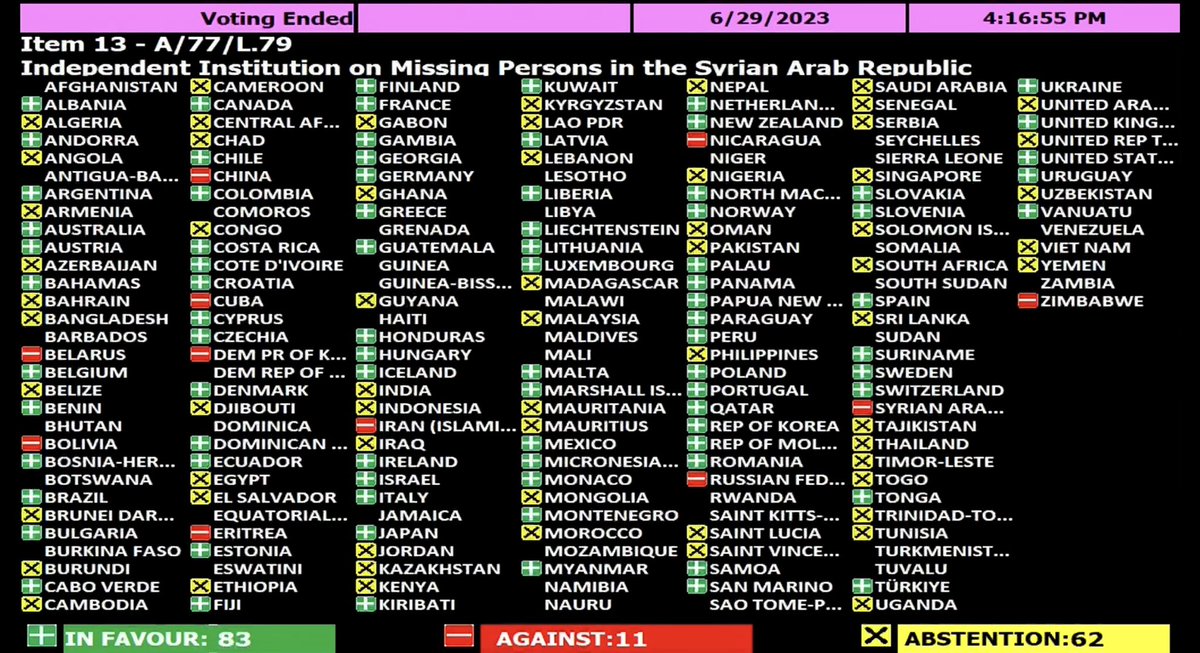The United Nations General Assembly recently passed a resolution with a majority vote to establish an independent body responsible for determining the fate of over 130,000 people who have gone missing as a result of the prolonged war in Syria. The resolution, spearheaded by Luxembourg, aims to address the appeals of families and loved ones who have been desperately seeking answers about their missing relatives. However, the decision faced opposition from countries including Syria, Russia, Belarus, China, North Korea, Cuba, and Iran, raising concerns about the cooperation and effectiveness of the newly established institution.
The Need for Resolution
After 12 years of ongoing war in Syria, the suffering of families with missing loved ones remains unresolved. The resolution acknowledges that little progress has been made in alleviating the agony endured by these families, emphasizing the importance of providing answers regarding the fate and whereabouts of all missing persons. By authorizing the establishment of an Independent Institution of Missing Persons in Syria under UN auspices, the resolution seeks to clarify the circumstances surrounding the disappearances and offer support to victims, survivors, and the families affected by the crisis.
Principles and Responsibilities
The resolution highlights the crucial role of the new institution in addressing the issue at hand. Guided by principles such as “do no harm,” impartiality, transparency, and the confidentiality of sources and information, the institution will endeavor to fulfill its mandate. It is imperative that the victims, survivors, and families of the missing are actively represented within this body to ensure their voices are heard and their needs are met. The resolution also emphasizes the responsibility of UN Secretary-General Antonio Guterres to define the terms of reference for the institution and to expedite its establishment and operation.
Importance of Adequate Resources
Human Rights Watch has rightfully emphasized the necessity of equipping the newly established institution with the required resources and staff to effectively carry out its tasks. Given the magnitude of the task at hand, UN member countries must ensure that the institution receives the necessary support to determine the fate of the thousands who have disappeared during Syria’s 12 years of war. The families and people of Syria have endured immense suffering, and they deserve nothing less than a comprehensive investigation to shed light on the fate of their loved ones.
Opposition and Challenges
The opposing countries, including Syria itself, Russia, Belarus, China, North Korea, Cuba, and Iran, have expressed their objections to the resolution. Syria considers the resolution to be politicized and an interference in its internal affairs. Syrian Ambassador Bassam Sabbagh argues that the country has already addressed the issue of missing persons by processing claims and conducting independent investigations within the framework of Syrian law. However, the lack of cooperation from the Syrian government with existing international bodies investigating missing people raises concerns about its commitment to a thorough and unbiased investigation.
The United Nations General Assembly’s resolution to establish an independent body to investigate the fate of over 130,000 missing people in Syria is a crucial step toward addressing the suffering of families and loved ones affected by the war. By creating the Independent Institution of Missing Persons, the international community aims to provide answers, support, and justice to those who have endured unimaginable pain and uncertainty. The resolution’s adoption with a majority vote demonstrates the global recognition of the urgent need to address this humanitarian crisis. It is essential for all stakeholders involved, including the Syrian government, to cooperate fully with the institution to ensure a comprehensive and impartial investigation that brings closure to the affected families and contributes to the pursuit of peace and stability in Syria.



